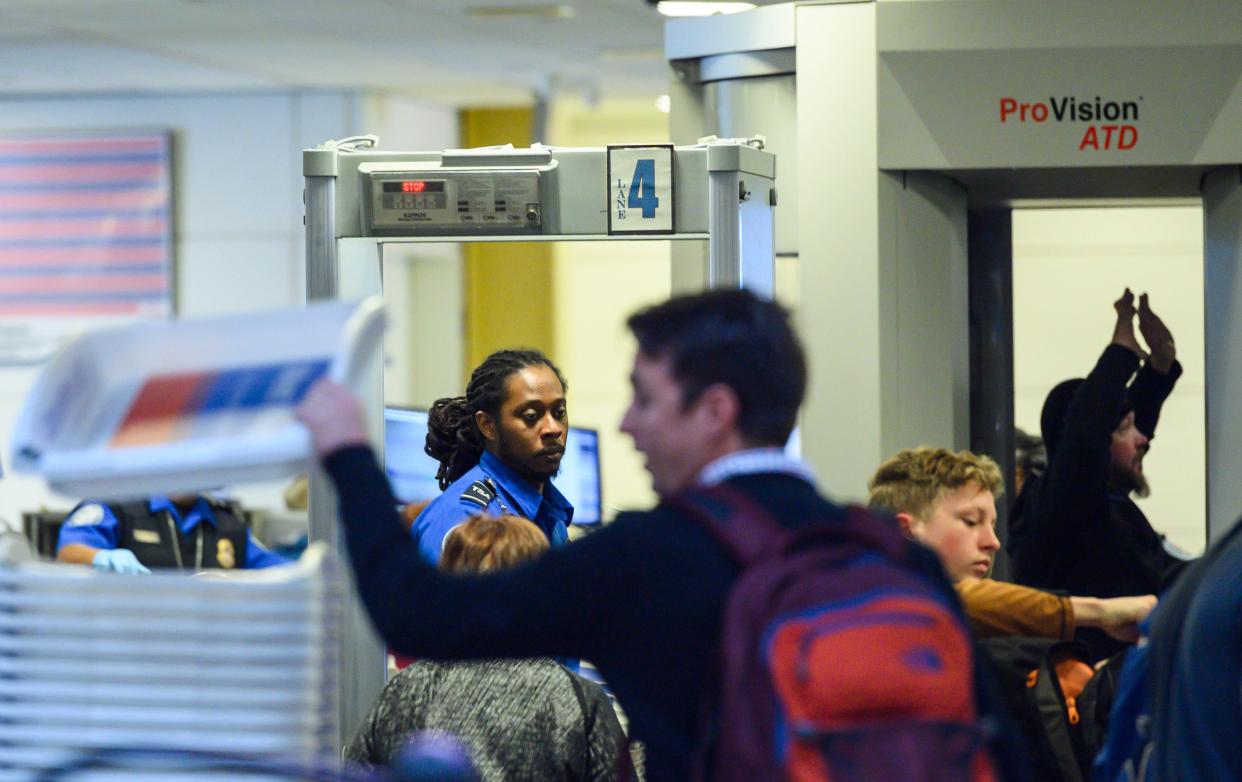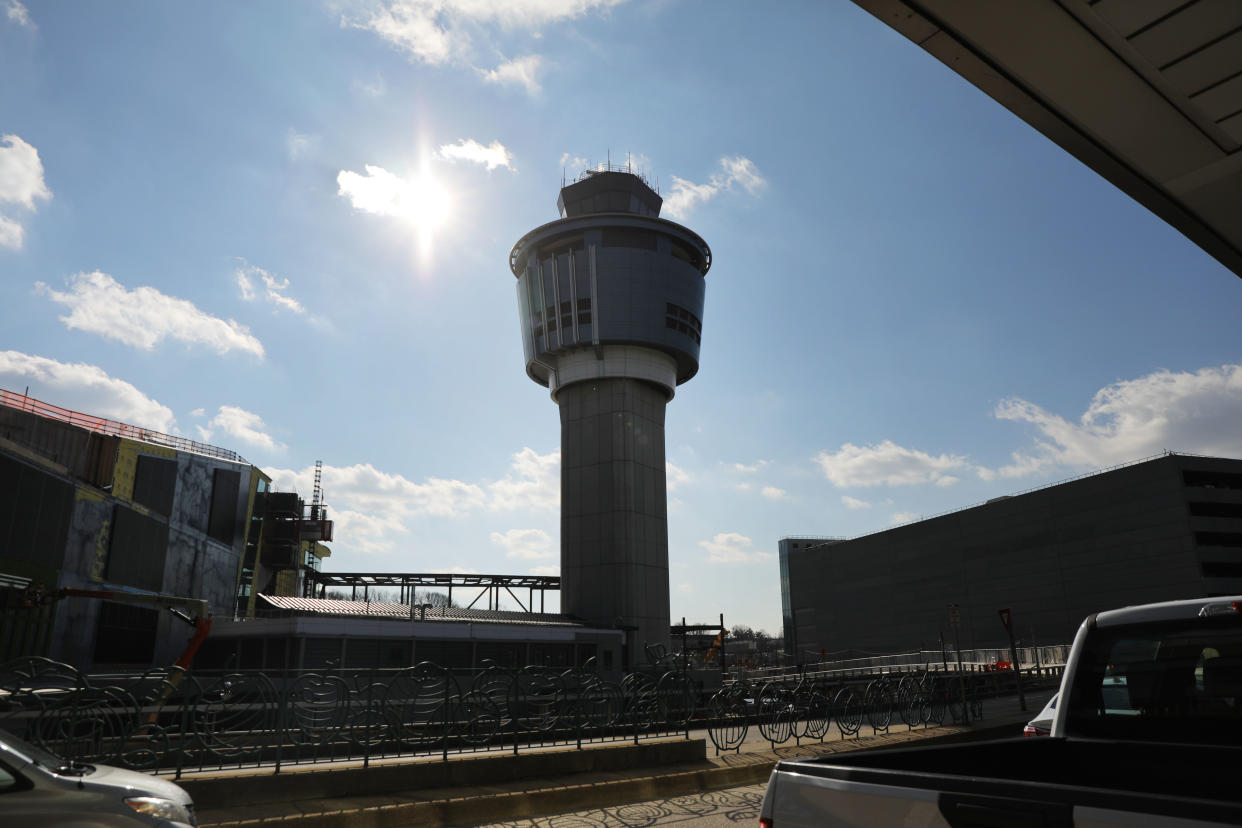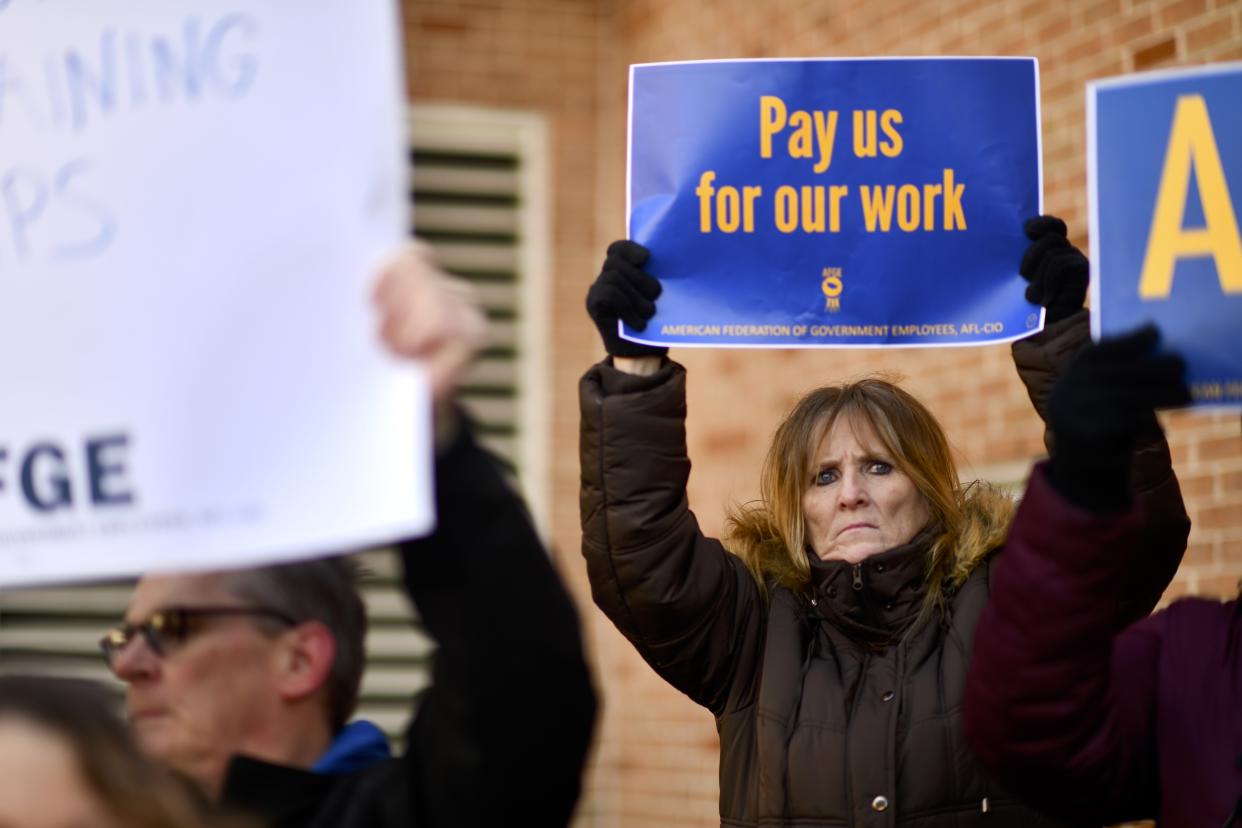Government shutdowns usually cause trouble at airports. This time could be worse.
From longer security lines to disruptions in the control tower, airports are often where Americans can most directly feel the impact of a government shutdown.
This time around, the risks for travelers and the industry could be even more pronounced.
That's because this Saturday looms not only as the deadline for Congress to avert a shutdown but also to reauthorize the Federal Aviation Administration (FAA).
"The last thing we need is more pressure on an already strained aviation system and workforce,” says Senate Commerce Committee Chair Maria Cantwell (D-Wash.). But it's an uphill battle for lawmakers in the days ahead to meet either due date.
Airlines for America, the industry’s voice in Washington, laid out in more detail what missing both deadlines could look like.
In a statement to Yahoo Finance, the group noted that a shutdown alone "could lead to flight delays for travelers and cargo shipments, longer screening lines,” and setbacks for future-focused efforts like training air traffic controllers and modernization initiatives.
The risks to the system could be amplified without adequate FAA funding. FAA gridlock, they added, “risks our ability to function efficiently and is not conducive to the growth and vitality of our airspace.”

While efforts are underway on Capitol Hill to avert at least some of the effects, the options at this point are limited.
A shutdown is seen by many as all but inevitable with lawmakers mulling various long-shot options days before the deadline. Meanwhile, agreement on a complicated multi-year FAA reauthorization package is also unlikely before Saturday with an array of issues still under debate — from annual funding levels to pilot training rules to new air routes.
On Tuesday evening, the Senate unveiled a last-gasp plan that would both avert a shutdown and offer a short-term FAA reauthorization to keep some of the agency's powers in place through the end of the year. But it faces an uncertain fate and appears likely to be ignored by the House of Representatives even if it's passed in the Senate before Saturday's deadline.
“It’s not ideal,” a Senate aide told Yahoo Finance regarding where things stand at the moment. They added one of the only certain things at this point is “that a lapse in authorization and funding for the FAA is going to be massively problematic.”
How airports have fared during previous shutdowns
History shows that some disruptions for travelers are likely if the government shuts down and will get worse the longer one lasts.
During the last government stoppage — which began in 2018 and stretched into 2019 — paychecks for much of the Transportation Security Administration (TSA) ceased, but agents were nonetheless asked to continue working during that 35-day shutdown.
Most kept coming in, but the agency experienced a higher-than-normal instance of unscheduled absences as some workers called in sick in as the standoff dragged on.
As a result, the TSA reported longer security lines at some airports, with some hubs opening fewer security checkpoints due to a lack of staffing. There were even some reports of security lapses, though TSA officials denied they had anything to do with the shutdown.

Air traffic controllers were in a similar boat that year. They saw their paychecks cease but were asked to keep working anyway.
With a median salary of about $132,000 in 2022, controllers are seen as more likely to be able to weather a temporary paycheck stoppage financially. But the air traffic system is unlikely to escape a shutdown unscathed.
Disruptions at US airports in recent years have been attributed both to weather as well as staffing issues in cockpits and control towers. Officials have zeroed in on how the FAA academy, where new controllers are trained, would close shop in the event a shutdown.
“I can’t believe some of the very same congressional Republicans, who get in line to try to beat us up any time there’s a travel disruption, even a weather-related travel [disruption], are going to turn around and shut down air traffic control training,” Transportation Secretary Pete Buttigieg told ABC on Sunday.
By law, both TSA employees (who operate under the Department of Homeland Security) and air traffic controllers (employed by the FAA) are required by law to receive back pay when the government reopens.
Boyd Group president Mike Boyd pointed to the day-to-day regulation authority of the FAA as another concern.
“That’s where the real sand might get into the works,” he said in a Yahoo Finance Live interview of things like approving new flight systems or inspecting runways. “It will delay a lot of things and will hurt some companies, there’s no question about it,” he added.

A second wave of impacts if FAA authorization lapses
FAA authorization was a nonissue during recent government shutdowns in 2013 and 2018. Authorization for the agency last lapsed in 2011 and led to the furlough of some employees, the stoppage of various projects, and revenue losses.
While many those effects would also be seen in a wider government shutdown, per the agency’s 2024 shutdown contingency plan, revenue issues would be an added complication if Congress also misses the reauthorization deadline.
The FAA is funded by Congress, but it also receives money from taxes passengers pay when they buy tickets. That money goes into the Airport and Airways Trust Fund. A lapse in authorization would jeopardize the agency's ability to access that money — as well as collect it. A standoff in 2011 reportedly cost the agency more than $350 million in lost revenue.
One FAA reauthorization bill has already advanced in the House to extend the agency for five years but has been stalled in the Senate since this summer over an amendment dispute. Last week, Senate Majority Leader Chuck Schumer announced movement forward on the House’s FAA bill but offered anything but a clear path to resolution.
Schumer’s move was instead a legislative ploy to give the Senate an option as it considers acting first to avert a government shutdown. Schumer is expected to announce plans in the coming days to amend the bill and send it back to the House, likely without the FAA measures.
Ben Werschkul is Washington correspondent for Yahoo Finance.
Click here for politics news related to business and money
Read the latest financial and business news from Yahoo Finance
